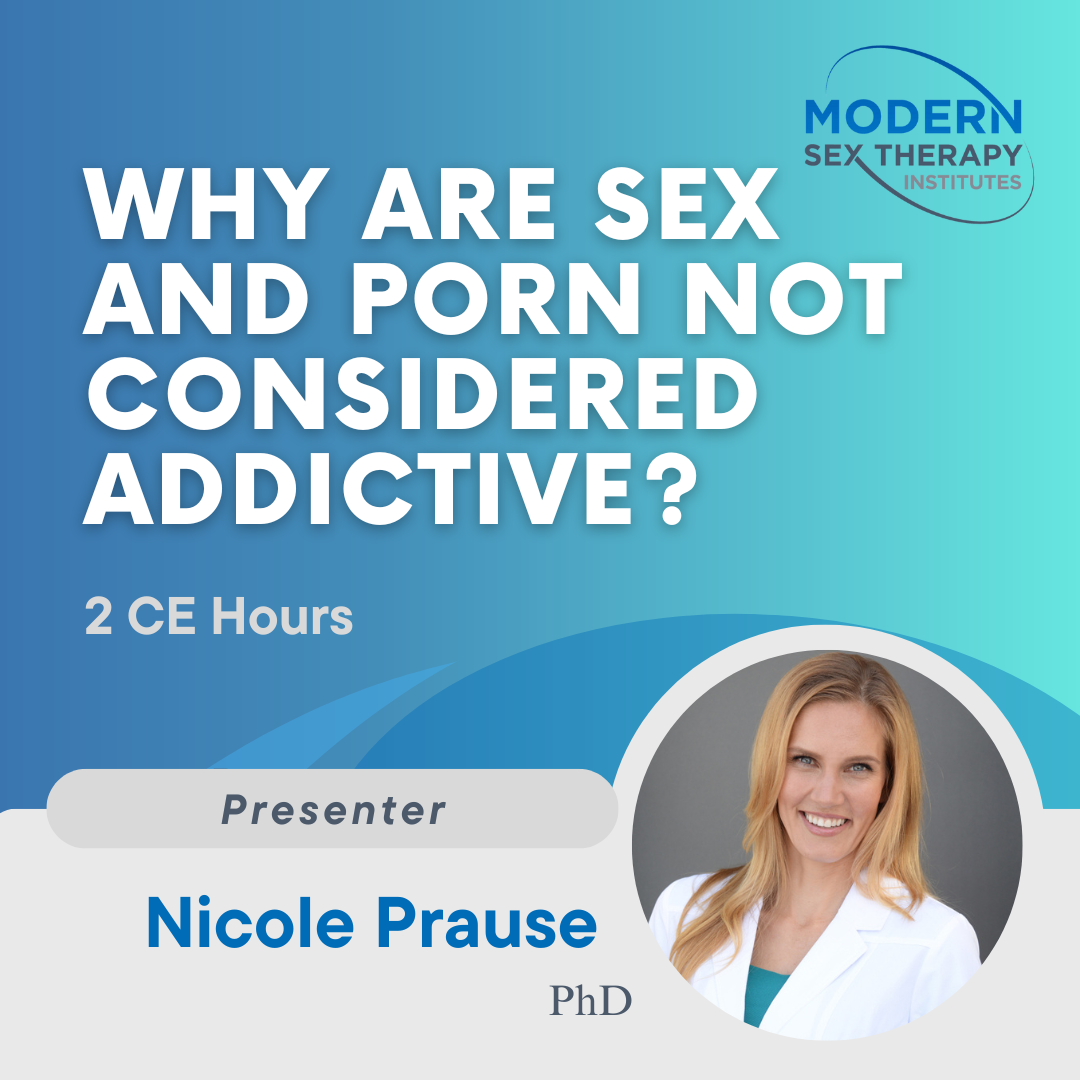Why are sex and porn not considered addictive? (2 CE Hours)
$80.00
Presented by: Nicole Prause, Ph.D.
2 CE Hours
Recorded workshop available via video on demand
Description
A lecture with an extended, participatory demonstration will help attendees understand the important differences between models of distressing, frequent sexual behaviors. A brief portion will focus on critically evaluating media coverage of the topic to translate health information patients are likely to encounter. Finally, two case assessments will provide tools to help identify the etiology of client’s distress.
Learning Objectives
At the completion of the course, participants will be able to:
- Describe at least four models of distressing, frequent sexual behaviors.
- Explain 2 different strategies for reducing distress around frequent sexual behaviors for clients that depend on the model used.
Activity Schedule:
9:00-10:00 Models of distressing, frequent sexual behaviors
10:00-11:00 Strategies for reducing distress and treatment
About the Presenter: Nicole Prause, Ph.D. is a neuroscientist and psychologist who studies sex, one of only a handful of scientists in the world trying to answer fundamental questions about what happens in our bodies and brains while we’re in amorous congress. Dr. Prause founded the biotechnology company Liberos after 10 years as a professor culminating at UCLA in the Department of Psychiatry. Her laboratory uses the most advanced measures of sexual and brain physiology to test the effects of sexual behaviors and interventions.
References:
Dover, C.R., Leonhardt, N.D., & Edwards, M.H. (2024). Labels are for soup cans: How self-labeling as “addicted” to pornography is associated with negative outcomes. Archives of Sexual Behavior.
Kraus, S.W., Voon, V., & Potenza, M.N. (2016). Should compulsive sexual behavior be considered an addiction? Addiction, 111: 2097-2106
Lewczuk, K., Glica, A., Nowakowska, I., Gola, M., & Grubbs, J. B. (2020). Evaluating pornography problems due to moral incongruence model. Journal of Sexual Medicine, 17(2), 300–311.
Reid, R. C. (2016). Additional challenges and issues in classifying compulsive sexual behavior as an addiction. Addiction, 111(12), 2111–2113. https://doi.org/https://doi.org/10.1111/add.13370(open in a new window)
Roolim A.V., Prause, N. (2014). A critical review of “Internet addiction” criteria with suggestions for the future. Journal of behavioral addictions, 3 (4), 203-213.
Willoughby, J.B., & Dover, C.R. (2024). Context matters: Moderating effects in the associations between pornography use, perceived addiction, and relationship well-being. Journal of Sex Research Vol. 61, p. 37-50.
Class originally recorded: 1/2/2025.
Social workers completing this course receive 2 clinical continuing education credits.

